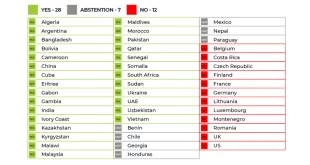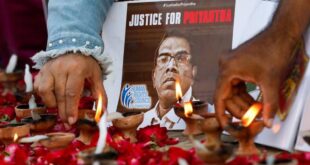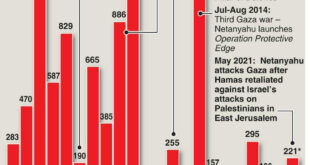 Neither party is likely to back off before achieving their objectives in what appears to be a zero-sum game, but the Makkah summit will give both sides time to recalibrate their positions on the conflict
Neither party is likely to back off before achieving their objectives in what appears to be a zero-sum game, but the Makkah summit will give both sides time to recalibrate their positions on the conflict
By Marwan Kabalan
August 10, 2012 "Information Clearing House" — Saudi Arabia’s King Abdullah Bin Abdul Aziz’s invitation to Iranian President Mahmoud Ahmadinejad to attend an emergency Islamic summit in Makkah later this month caught many observers by surprise. The invitation was extended at a time when relations between the two key Gulf powers have reached a new low over the very issue the summit is designed to deal with — Syria.
More surprising was Tehran’s response. Ahmadinejad is said to have accepted the invitation and is preparing to lead his country’s delegation to the summit of the Organisation of Islamic Cooperation (OIC) which will be held on August 15-16.
It is common knowledge that Iran and Saudi Arabia are competing in the wider Middle East region, wherein they back rival camps in Iraq, Lebanon, Yemen and the Occupied Territories. They are also at odds over the Shiite protesters in Bahrain and Saudi Arabia’s eastern province. Saudi officials routinely accuse Iran of fomenting the protests in both cases.
Yet, it is over Syria that the Saudi-Iranian confrontation has become the most pronounced and dangerous. Iran and Saudi Arabia are deeply involved in Syria wherein Tehran supports the regime of President Bashar Al Assad and Riyadh backs his increasingly militarised opposition.
Following the collapse of Kofi Annan’s mission to Syria, Riyadh has become more open in expressing its support for the Syrian opposition, including the Free Syrian Army. Iran, on the other hand, has in recent weeks become more inclined to intervene publicly in the Syrian conflict.
Top Iranian officials have on various occasions warned that they will not allow the Syrian regime to collapse. Given the polarisation between the Saudis and the Iranians, a few in fact would expect that the visit by Ahmadinejad to Makkah would produce any political solution to the Syrian crisis.
Grand competition
What the visit might do instead is to give the two sides a short respite to evaluate their strategies and prepare for the next round in their grand competition for supremacy in the region. It might also help mitigate the sectarian tension which reached a dangerous level in recent months.
Right now Saudi Arabia and Iran are locked in a fierce conflict to reshape the balance of power in the Gulf and the Middle East. Neither side is likely to back off before achieving this objective in what appears to be a zero-sum game.
The withdrawal of the US forces from Iraq last year was a big moment for Iran. The US retreat has not only allowed Tehran to secure its western flank, but has also opened the door for it to project influence into the heart of the Arab world.
Taking advantage of becoming the region’s pre-eminent conventional military power, Iran took further steps that have naturally caused great concern in Saudi Arabia and the world at large.
It became more open in reminding the world from time to time that it has the ability to close the Strait of Hormuz and therefore cripple an already fragile global economy.
The Strait of Hormuz is a vital choke point in the shipping of crude oil from the Gulf into the open sea, seeing the passage of about 90 per cent of the Gulf’s oil exports (40 per cent of the global seaborne oil trade) and all of its liquefied natural gas exports.
Pooling resources
The Strait of Hormuz is also vital for the economies of the Arab Gulf states which rely heavily on it to get its key commodity — oil — exported to the world.
Indeed, Iran does not have the luxury of complete freedom of action here, and the Saudis understand that very well. This kind of policy is likely to be met with a rapid and hard-hitting international response to contain a crisis in the narrow Hormuz Strait.
In addition, the GCC countries are putting extra effort into pooling their resources to form a more unified security front. They aim to build on their accomplishments in Bahrain, where in March 2011 the Peninsula Shield force deployed to quell unrest, and to make clear to Iran that they have the means to block Iranian meddling among the Shiite communities within their borders.
Given current regional dynamics and the lack of trust on the part of the Saudis on the reliability of the US to effectively counter Iran, Riyadh might think that it needs to keep Tehran occupied, in Syria for example, to entertain grander ambitions in the region.
At this point, a conversation may have to be held with the adversary, and perhaps a truce arranged to give both sides time to recalibrate their positions.
Dr Marwan Kabalan is the dean of the Faculty of International Relations and Diplomacy at the University of Kalamoon, Damascus.
This article was originally published at Gulf News
 Sri lanka Muslims Web Portal Diversity and Inclusiveness
Sri lanka Muslims Web Portal Diversity and Inclusiveness



